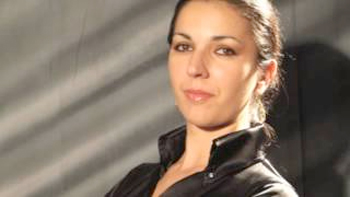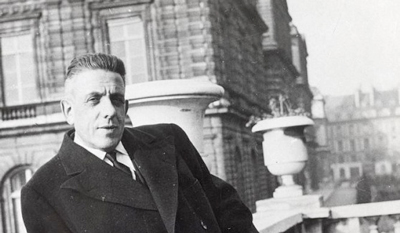by Daniel Hathaway

“It looks like the Poulenc may be a Cleveland premiere,” Friscioni told us in a telephone conversation. “The orchestra checked everywhere and there’s no record of another performance.” Underscoring the work’s relative obscurity, the soloist herself wasn’t familiar with it before McCoy suggested it to her. “He saw that my husband Antonio Pompa-Baldi and I had played the two-piano concerto, and Mark and I both love Poulenc. It’s good to learn something new and fresh.”
Poulenc wrote that he intended the piece to be exactly that: new and fresh. “As opposed to the famous concertos of the past, which require great virtuosos, I decided to write a light concerto, a sort of souvenir of Paris for pianist-composer. I had no fear that such a thing would be poorly received, so that is why I interjected into the rondeau à la française the rhythm of the maxixe [a Brazilian tango] and a spiritual derived from an old song sung by La Fayette’s sailors. I was amused and pleased by this handshake with a country that, right now, contains my most numerous and loyal audience.”
“The changes in mood and character make me think of the Paris of the 1920s,” Friscioni said. “It really represents Poulenc’s personality, from his most expressive side in the second movement to his sense of mischief in the third. The first movement is gorgeous with its violin solos and its dialogue between the piano and orchestra. But you never know what’s going to happen in the next few measures. You’re phrasing a beautiful line — then you suddenly have to put on a different hat. It’s fun to make those mood changes with the orchestra.”

But before he left for Boston, Poulenc had a nightmare about the piece. “I had just played the first movement of my Concerto in Boston,” he wrote to the pianist Irène Aïtoff. “Twenty American ladies could not prevent themselves from crying out in admiration. After the Andante we had to carry away on a stretcher about a hundred of them who passed out overcome by the voluptuous aspect of my music.”
As it turned out, no such mass fainting besmirched the premiere. And when the concerto was repeated in New York, Musical America wrote, “It is a witty and beautiful musical discourse, enhanced by piquant orchestration…Mr. Poulenc played his concerto with delightful nonchalance and refinement of accent, and the audience was charmed.”
Because of her busy schedule these days, Emanuela Friscioni doesn’t have as much time to devote to performing as she did earlier in her career. “It’s hectic between teaching, running the Tri-C Piano Series, working with the Tri-C Academy and being a mom,” she said. But in December, she’ll make her debut in China during her first visit to that country. That will take place on Gulangyu Island in the South, a small community of 20,000 residents who get around in small electric buggies because gas-powered vehicles — as well as bicycles — are banned.
Why Gulangyu? “Its nickname is ‘Piano Island,’ because they have the only piano museum in China,” she said. The museum owns over 100 pianos from all periods, and the island is the site of a ten-day International Piano Art Festival.
This summer, Emanuela Friscioni plans to return to Italy for a month or so — something she and her daughter try to do for at least one month each year. “I’m from Lake Como and my husband, Antonio, is from the south, so we decided when we got married to move to the middle of the country.”
That was before Friscioni and Pompa-Baldi came to Cleveland so Antonio could compete in the 1999 Cleveland International Piano Competition. After he won first prize, they decided to stay. “One of the reasons we decided to make that big jump was all the unbelievable opportunities Cleveland offers for a city of its size,” she said. “The cost of living is reasonable, and the quality of the arts is astonishing.”
Quotations from Carl B. Schmidt’s Entrancing Muse: A Documented Biography of Francis Poulenc (Pendragon Press, 2001).
Published on ClevelandClassical.com March 24, 2015.
Click here for a printable copy of this article.



